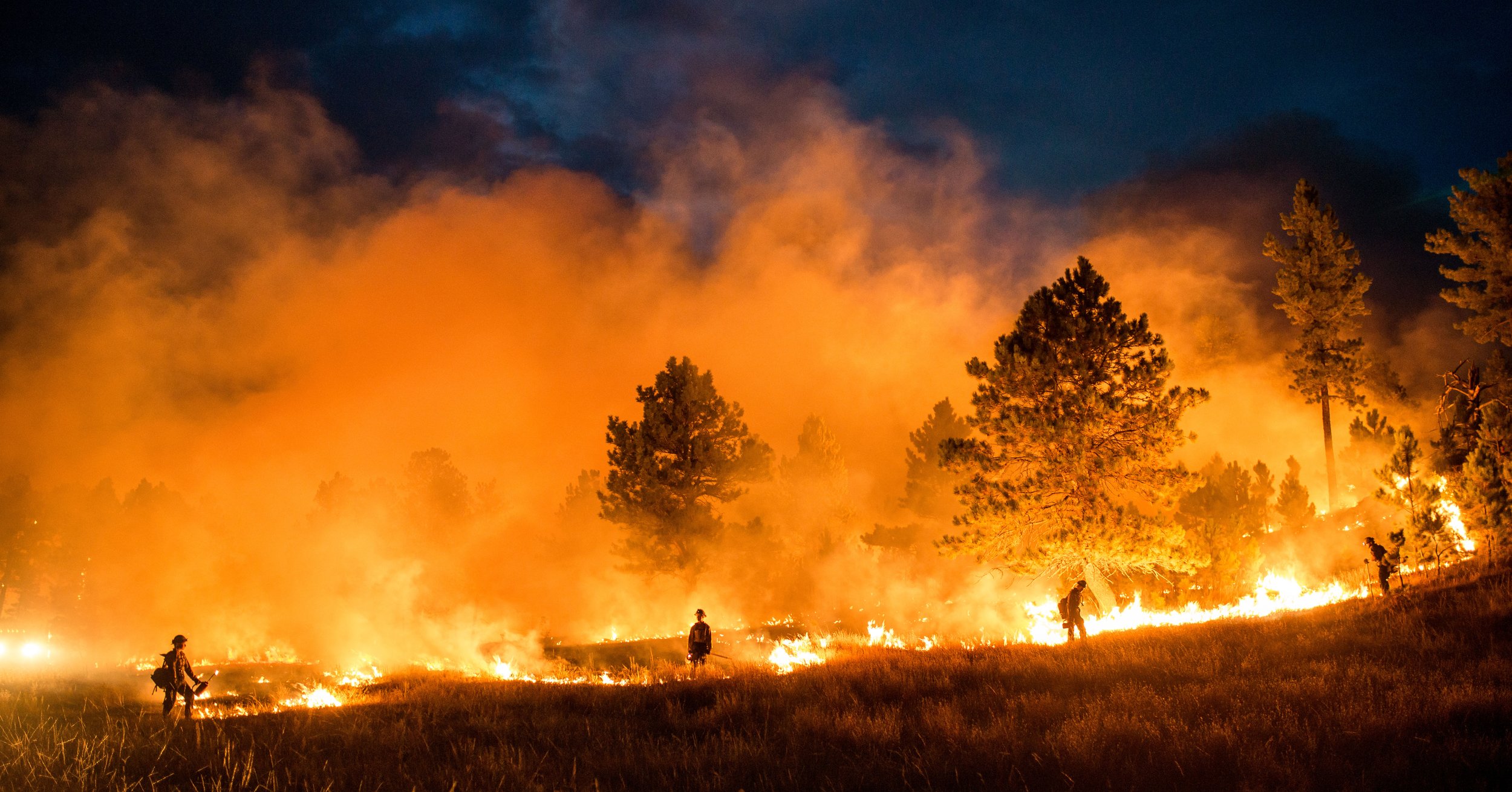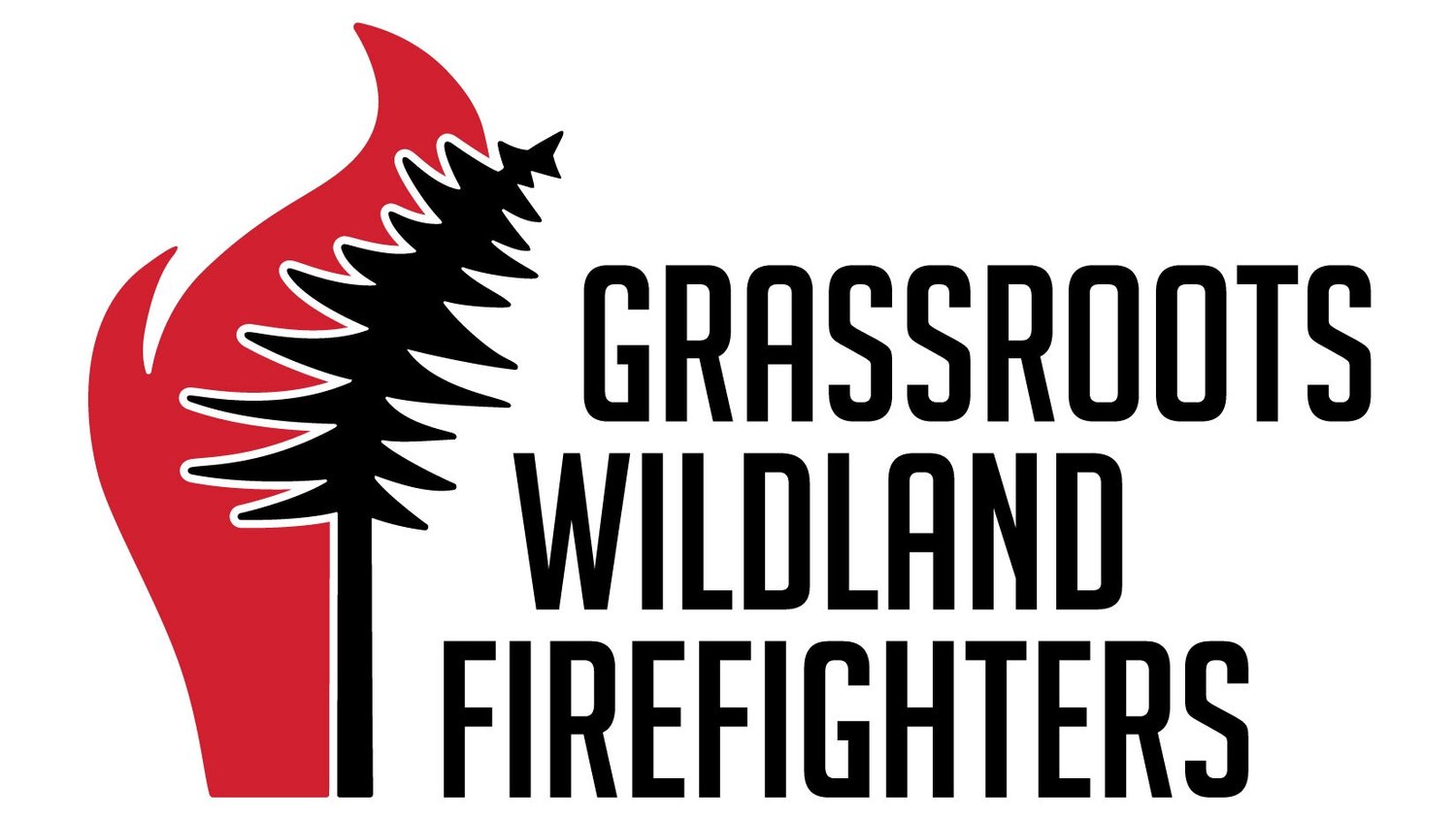
Tim Hart Wildland Firefighter Classification and Pay Parity Act
S.1505 & H.R. 3108
To reform and enhance the pay and benefits of Federal wildland firefighters, and for other purposes
Sponsors and Cosponsors
House of Representatives:
Rep. Neguse, Joe [D-CO-2] (Introduced 05/05/2023)
Rep. Porter, Katie [D-CA-47]* 05/05/2023
Rep. Thompson, Mike [D-CA-4] 06/06/2023
Rep. Salinas, Andrea [D-OR-6] 06/07/2023
Rep. Harder, Josh [D-CA-9] 06/12/2023
Rep. Brownley, Julia [D-CA-26] 06/14/2023
Rep. Blumenauer, Earl [D-OR-3] 06/30/2023
Rep. Titus, Dina [D-NV-1] 06/30/2023
Rep. Garcia, Sylvia R. [D-TX-29] 06/30/2023
Rep. Schiff, Adam B. [D-CA-30] 06/30/2023
Rep. Hoyle, Val T. [D-OR-4] 07/06/2023
Rep. Schrier, Kim [D-WA-8] 07/11/2023
Rep. Stansbury, Melanie Ann [D-NM-1] 07/11/2023
Rep. Costa, Jim [D-CA-21] 07/26/2023
Rep. Perez, Marie Gluesenkamp [D-WA-3] 08/04/2023
Rep. Gallego, Ruben [D-AZ-3] 08/04/2023
Rep. Levin, Mike [D-CA-49] 09/01/2023
Rep. Fitzpatrick, Brian K. [R-PA-1] 09/12/2023
Rep. Lofgren, Zoe [D-CA-18] 10/03/2023
Rep. Garcia, Robert [D-CA-42] 10/11/2023
Senate:
Sen. Bennet, Michael F. [D-CO] (Introduced 05/09/2023)
Sen. Cortez Masto, Catherine [D-NV] 09/19/2023
Statements Of Support
“On behalf of the US Hotshots Association, we are genuinely pleased to learn about the Tim Hart Wildland Firefighter Classification and Pay Parity Act. This bill will reform and enhance the pay and retirement benefits of federal wildland firefighters and is a tremendous leap in the sensible course for all current afd future wildland firefighters and their families. You have our endorsement, and we wish you complete success.”
— Hector Medrano, President, US Hotshots Association
“The National Federation of Federal Employees (NFFE) fully supports the Tim Hart Wildland Firefighter Classification and Pay Parity Act. As fire seasons have become increasingly long and dangerous, it is imperative that federal firefighters have the resources they need to protect our country from this crisis. Due to the strenuous nature of the duties wildland firefighters undertake, we must support these brave public servants with better pay, housing, health care, and mental health services. This legislation provides long overdue programs and resources that significantly improve the lives of wildland firefighters and their families. Congress must pass the The Tim Hart Wildland Firefighter Classification and Pay Parity Act.”
— NFFE
“The Wildland Firefighter Foundation applauds this legislation as a major step to meaningful reform for the wildland firefighting workforce. Too long this brave group of men and women have been underappreciated and undercompensated for the grueling and life threatening work they undertake on behalf of millions of Americans. The issues of pay, classification, mental and physical health, recruitment, retention, and housing instability have long plagued this workforce. We are confident that these changes will lead to a more robust workforce which is desperately needed to tackle the challenges of the increasing length and intensity of wildfire seasons.”
— Burk Minor, Executive Director, Wildland Firefighter Foundation
“The National Smokejumper Association strongly supports the direction of the Tim Hart Wildland Firefighter Classification and Pay Parity Act: To reform and enhance the pay and retirement benefits of Federal firefighters. Pay and benefits for Federal Wildland Firefighters must be drastically improved to be commensurate with the difficult, dangerous work they do. Improved pay and benefits is required for the Federal Government to attract and retain the highly skilled, professional workforce necessary in today’s fire environment. Moreover, increasing the pay and benefits of Federal Wildland Firefighters is simply the right thing to do!”
— National Smokejumper Association
“The San Francisco Firefighters Cancer Prevention Foundation strongly supports the Tim Hart Wildland Firefighter Classification and Pay Parity Act (H.R. 5631). This act correctly classifies federal employees who put their lives on the line protecting our nation’s wildlands and communities from fire…
Cancer is now the leading cause of job-related death for America’s firefighters. Wildland Firefighters… exposure to toxic materials… combined with their lower levels of personal protective equipment and breathing protection often put them at higher risk for carcinogenic exposures than their brothers and sisters working in urban departments.”
What’s in the Bill?
-
Determine Who is a Wildland Firefighter
Any temporary, seasonal, or permanent position at the USDA or DOI that maintains group, emergency incident management, or fire qualifications and primarily engages in or supports wildland fire management activities, including forestry and rangeland technicians and positions concerning aviation, engineering heavy equipment operations, or fire and fuels management
-
Develop One or Mulitiple Wildland Firefighter Classifications
Any individual employed in a position that is eligible for a firefighter retirement will be able to elect to be transferred to the new classification
-
Establish a New Pay Scale
Federal Wildland Firefighters will have a new pay scale that will start at the GS6 Step 3 ($20.09) level. This pay scale will be tied to CPI data reported for December of the year prior to the preceding year
-
Hazardous Duty Pay Expansion
Hazardous Duty Pay will be expanded to include prescribed fire, parachuting, tree climbing over 20 feet, hazard tree removal, and other hazardous work
-
Portal To Portal Pay
A Federal Wildland Firefighter shall be paid for the period beginning on the receipt of their resource order and ending when the employee returns from such deployment
-
Unpaid Leave to Care for Family Member
A Federal Wildland Firefighter shall be allowed a period of 180 days in order to care for the spouse, or a son, daughter or parent of the employee if there is a serious health condition.
-
Recruitment and Retention Bonus
Not less than $1000 shall be paid annually as a “recruitment and retention” bonus. The minimum amount shall be increased with CPI.
-
Career Transition Fund
Wildland Firefighters will be eligible to receive no less than $4,000 per year to assist in career transition including academic skills development, career and technical programs, and programs leading to the award of undergraduate and graduate degrees
-
Health Provisions
-A searchable database will be established that tracks wildland firefighter cancer and cardiovascular diseases throughout the lifetime of current and former federal wildland firefighters
-Mandates development and adherence to recommendations on mitigation strategies to minimize exposure to environmental hazards for federal wildland firefighters -
Mental Health Program
-Develop a mental health program
-Requires mental health education and training for new hires
-Expands Critical Incident Stress Management (CISM) program
-Offer a new mental health program that is specific to wildland firefighters and their families -
Mental Health Leave
Each Federal Wildland Firefighter shall be entitled to 7 consecutive days of leave during any calendar year. This resets each year
-
Presumptive Coverage for Diseases
Diseases shall be presumed to be caused by the employment of a Wildland Firefighter. Such diseases include: heart disease; lung disease; multiple cancers.
-
Retirement When Injured
When injured on the job and no longer able to perform service as a Wildland Firefighter, they shall be appointed to a supervisory or administrative position related to the former firefighter position. Employee shall continue to receive firefighter retirement and also retain creditable service already earned.
-
Buy Back Temp Time
Career Wildland Firefighters shall be able to contribute retirement deductions for all temporary employment service after Jan 1, 1989
-
Disability Annuity
Any Federal Wildland Firefighter who suffers from diseases described in this bill due to job-related exposure shall be considered to be disabled
-
Including Overtime as Basic Pay
Federal Wildland Firefighters will include overtime pay when calculating their retirement annuity
Media Coverage
Press Introduction
Who is Tim Hart?
Tim graduated high school from Zion Benton High School in Zion, Illinois. He continued his educational career attending Southern Illinois University where he studied Forestry and Natural Resources. He graduated cum laude from Southern Illinois and pursued a master’s degree in Natural Resources Management and Forestry from the University of Wisconsin Stevens Point.
In 2006 he began his wildland firefighting career on the Coconino National Forest and then the Fremont-Winema National Forest as an Engine Crew Member.
In 2009, he joined the Shoshone National Forest as a Lead Forestry Technician on an Engine and in 2010 detailed to the Asheville Interagency Hotshot Crew as a Lead Firefighter. Following this detail assignment Tim decided to join the Asheville Crew permanently and moved to North Carolina.
In 2013 he moved to Elko, Nevada to work for the Bureau of Land Management on the Ruby Mountain Hotshot Crew.
He decided to join the smokejumper program in 2016 and re-located to Grangeville, Idaho as a Rookie. In 2019, his wildland firefighter journey took him to West Yellowstone, Montana as a Smokejumper Squad Leader and in 2020 as a Spotter.
He married his wife Michelle in Cody, Wyoming in 2019 where they lived with their dog Dash. He and Michelle shared a love of music – Tim’s instrument of choice being the banjo. With his Illinois roots he was a huge Chicago Cubs and Chicago Bears fan.
His thorough approach, kindness, sense of humor, and leadership skill were an instrumental component of the West Yellowstone Smokejumper Base. He will be greatly missed.
Tim Hart passed away on June 2nd, 2021
Hearings
A few quotes from the Hearing:
Rep. Liz Cheney (R-WY) advocates for “adequate pay” for wildland firefighters, ensuring “we recognize the real danger they face & the sacrifices they make to keep us safe.”
Jeff Rupert, DIrector of Office of Wildland Fire, DOI: “Our firefighters are stretched to the limit and many suffer from physical and mental fatigue with no time to rest & recuperate between deployments… Pay, Benefits & Wellness programs currently in place do not adequately support firefighter needs.”
Jaelith Hall-Rivera, Deputy Chief, State and Private Forestry, USFS: “The toll of longer fire seasons, more extreme fire behavior, devastating fire impacts and pay and benefits that are not competitive is becoming unsustainable for our forest service firefighters.”
Rep. Bruce Westerman (R-AR): “We should be paying our firefighters more…”
Rep. Joe Neguse (D-CO): “Wildfires today are really a year round risk, burning larger areas at higher intensity… we have neglected to prioritize the wellbeing of those on the frontlines of these climate driven disasters - the brave, federal wildland firefighters.”
Testimony (click link):
Mr. Jeff Rupert
Director, Office of Wildland Fire
US Department of the Interior
Ms. Jaelith Hall-Rivera
Deputy Chief, State and Private Forestry
USDA, Forest Service
Mr. Lucas Tanner Mayfield
Vice President, Grassroots Willdland Firefighters
Supervisory Forestry Technician (Resigned)
Ms. Kelly Martin
President, Grassroots Wildland Firefighters
Chief of Fire and Aviation, Yosemite National Park (Retired)
Mr. Matt Dias
President & CEO California Forestry Association
Tim Hart Act: Next Steps
The bill will be introduced into the House Natural Resources Committee. We need to contact members of this committee to ask for a vote and passage on to the house floor.


